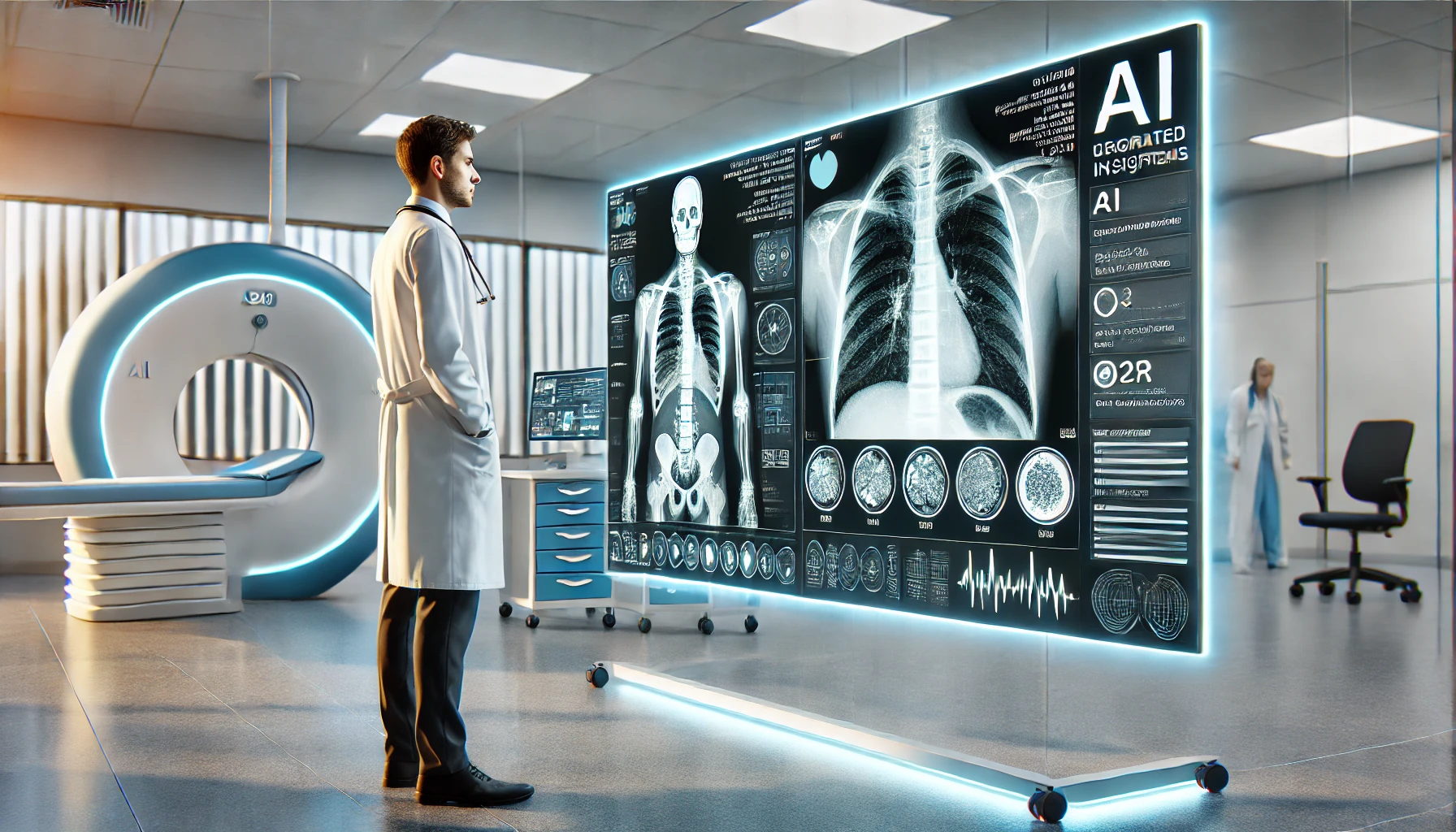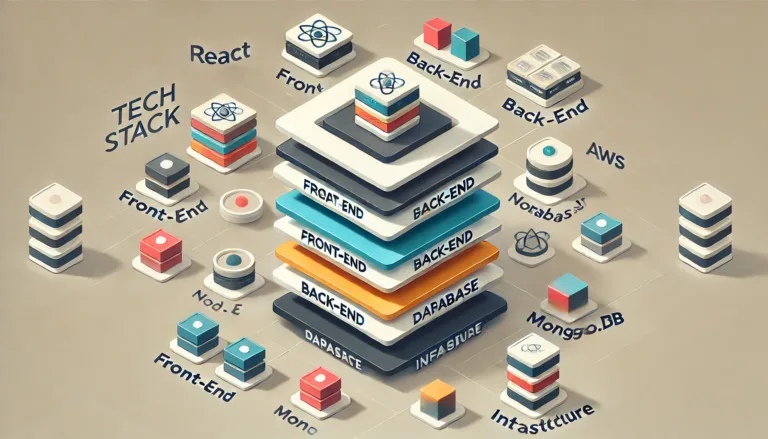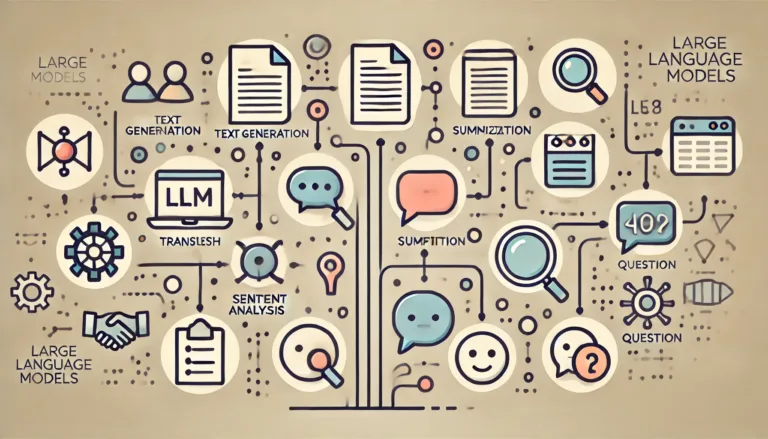The integration of AI into healthcare is nothing short of revolutionary. From diagnosing diseases with unprecedented accuracy to personalizing treatment plans, AI is enhancing patient care in ways we could only dream of a few years ago. If you’re passionate about using technology to make a real difference in people’s lives, healthcare AI projects offer a unique opportunity to do just that. In this article, we’ll dive into 32 AI project ideas that could potentially save lives and improve the quality of healthcare globally.
Beginner-Level AI Projects in Healthcare
For those who are new to AI in healthcare, these beginner-level projects will help you build foundational knowledge while contributing to impactful solutions.
1. Disease Prediction Models
- Objective: Develop AI models to predict diseases like diabetes or heart disease based on patient data.
- Tools and Technologies: Python, Scikit-learn, TensorFlow.
- Learning Outcomes: Learn how to preprocess data, build predictive models, and evaluate their performance.
2. Personalized Medicine
- Objective: Use AI to tailor treatments based on individual genetic profiles.
- Tools and Technologies: Python, TensorFlow, genomic databases.
- Learning Outcomes: Understand the basics of genomics and how AI can be used for personalized healthcare.
3. Medical Image Diagnosis
- Objective: Build systems to detect conditions from medical images like X-rays or MRIs.
- Tools and Technologies: OpenCV, TensorFlow, Keras.
- Learning Outcomes: Gain experience with image processing and neural networks for medical diagnosis.
4. Virtual Health Assistants
- Objective: Create AI-powered assistants that monitor patient health and provide advice.
- Tools and Technologies: Python, Natural Language Processing (NLP) libraries, chatbot frameworks.
- Learning Outcomes: Learn about NLP and how AI can interact with patients.
5. Health Monitoring Wearables
- Objective: Design AI algorithms for wearable health devices that monitor vitals like heart rate or blood pressure.
- Tools and Technologies: Python, TensorFlow, IoT devices.
- Learning Outcomes: Explore the intersection of AI and wearable technology in healthcare.
6. AI in Mental Health
- Objective: Use AI to analyze and predict mental health issues from patient data.
- Tools and Technologies: Python, NLP libraries, sentiment analysis tools.
- Learning Outcomes: Understand how AI can be applied to detect and manage mental health conditions.
7. Telemedicine Solutions
- Objective: Develop AI tools that assist in remote diagnosis and consultation.
- Tools and Technologies: Python, video conferencing APIs, TensorFlow.
- Learning Outcomes: Learn about telemedicine and the role of AI in enhancing remote healthcare.
8. Health Chatbots
- Objective: Develop AI chatbots that provide health advice based on symptoms.
- Tools and Technologies: Python, NLP libraries, chatbot development frameworks.
- Learning Outcomes: Understand how chatbots can be used in healthcare to improve patient engagement.
Intermediate-Level AI Projects in Healthcare
As you gain more experience, these intermediate projects will challenge you to apply complex algorithms and manage larger datasets.
1. AI for Drug Discovery
- Objective: Accelerate drug discovery using AI to predict molecular behavior and interactions.
- Tools and Technologies: Python, TensorFlow, molecular databases.
- Learning Outcomes: Explore the application of AI in pharmaceutical research and development.
2. AI in Genomics
- Objective: Use AI to analyze and interpret genomic data, leading to discoveries in genetics.
- Tools and Technologies: Python, TensorFlow, genomic datasets.
- Learning Outcomes: Understand the role of AI in genomics and how it can lead to personalized medicine.
3. Predicting Patient Outcomes
- Objective: Create models to predict patient recovery times and outcomes after treatment.
- Tools and Technologies: Python, TensorFlow, patient data.
- Learning Outcomes: Learn how to build predictive models that can aid in treatment planning.
4. Chronic Disease Management
- Objective: Build AI systems to help manage chronic diseases like asthma or diabetes.
- Tools and Technologies: Python, TensorFlow, healthcare databases.
- Learning Outcomes: Understand the challenges of chronic disease management and how AI can provide solutions.
5. AI-Powered Medical Records
- Objective: Develop tools to automatically organize and interpret medical records for healthcare providers.
- Tools and Technologies: Python, NLP libraries, TensorFlow.
- Learning Outcomes: Learn about data management and how AI can streamline healthcare documentation.
6. Predictive Analytics for Healthcare
- Objective: Analyze patient data to predict hospital admission rates and optimize resource allocation.
- Tools and Technologies: Python, Scikit-learn, TensorFlow.
- Learning Outcomes: Gain skills in predictive analytics and its applications in healthcare management.
7. Remote Patient Monitoring
- Objective: Build systems that monitor patients at home and alert healthcare providers if necessary.
- Tools and Technologies: Python, IoT devices, TensorFlow.
- Learning Outcomes: Understand the growing field of remote patient monitoring and the role of AI in it.
8. AI in Radiology
- Objective: Use AI to assist radiologists in interpreting scans and identifying anomalies.
- Tools and Technologies: Python, TensorFlow, medical imaging databases.
- Learning Outcomes: Explore how AI can enhance radiology by improving accuracy and reducing workload.
9. AI for Rehabilitation
- Objective: Develop tools that assist in the rehabilitation of patients after surgery or injury.
- Tools and Technologies: Python, TensorFlow, motion capture systems.
- Learning Outcomes: Learn about rehabilitation processes and how AI can contribute to faster recovery.
10. AI in Pediatrics
- Objective: Create systems that focus on the health needs of children, such as growth tracking or immunization scheduling.
- Tools and Technologies: Python, TensorFlow, pediatric health data.
- Learning Outcomes: Understand how AI can be tailored to address the specific needs of pediatric healthcare.
11. AI for Personalized Fitness
- Objective: Develop AI-powered fitness plans based on user data to optimize health and performance.
- Tools and Technologies: Python, TensorFlow, fitness tracking data.
- Learning Outcomes: Learn how AI can create personalized fitness routines that adapt to individual needs.
12. AI-Powered Photo Analysis for Skin Conditions
- Objective: Develop AI tools that analyze photos of skin conditions to identify and suggest possible treatments.
- Tools and Technologies: Python, TensorFlow, image processing libraries.
- Learning Outcomes: Explore how AI can assist in early detection and treatment of skin-related health issues.
Advanced-Level AI Projects in Healthcare
For those with significant experience, these advanced projects involve cutting-edge research and the integration of AI with other technologies.
1. AI for Surgery Assistance
- Objective: Develop systems that assist surgeons during operations by providing real-time data and suggestions.
- Tools and Technologies: Python, TensorFlow, robotic surgery platforms.
- Learning Outcomes: Explore the use of AI in surgical procedures and how it can improve precision and outcomes.
2. AI for Public Health
- Objective: Predict and analyze the spread of diseases like COVID-19 using AI models.
- Tools and Technologies: Python, TensorFlow, public health datasets.
- Learning Outcomes: Understand the role of AI in public health and how it can aid in preventing pandemics.
3. AI-Powered Diagnostics Tools
- Objective: Create handheld diagnostic tools powered by AI that can be used in remote or resource-limited settings.
- Tools and Technologies: Python, TensorFlow, mobile development platforms.
- Learning Outcomes: Learn about portable diagnostics and the potential of AI to democratize healthcare access.
4. Elderly Care AI Systems
- Objective: Develop AI tools to monitor and assist elderly patients, ensuring their safety and well-being.
- Tools and Technologies: Python, TensorFlow, IoT devices.
- Learning Outcomes: Explore how AI can support the growing needs of elderly care.
5. AI in Prosthetics
- Objective: Use AI to improve the functionality of prosthetic limbs, enhancing movement and adaptability.
- Tools and Technologies: Python, TensorFlow, robotics.
- Learning Outcomes: Learn about the intersection of AI and prosthetics and how it can improve the quality of life for amputees.
6. Predicting Disease Outbreaks
- Objective: Use AI to predict and respond to disease outbreaks, enabling quicker responses and better resource allocation.
- Tools and Technologies: Python, TensorFlow, public health data.
- Learning Outcomes: Understand how AI can be used to predict outbreaks and protect public health.
7. AI for Nutrition
- Objective: Develop systems that create personalized diet plans based on individual health data and goals.
- Tools and Technologies: Python, TensorFlow, nutrition databases.
- Learning Outcomes: Explore the role of AI in personalized nutrition and how it can promote healthier lifestyles.
8. AI for Clinical Trials
- Objective: Optimize clinical trial processes using AI to analyze data and predict outcomes.
- Tools and Technologies: Python, TensorFlow, clinical trial datasets.
- Learning Outcomes: Understand how AI can streamline clinical trials, making them more efficient and effective.
9. Healthcare Fraud Detection
- Objective: Build AI tools to detect fraudulent activities in healthcare, such as insurance fraud or billing errors.
- Tools and Technologies: Python, TensorFlow, anomaly detection algorithms.
- Learning Outcomes: Learn about fraud detection and how AI can protect the integrity of healthcare systems.
10. AI-Powered Patient Experience Improvement
- Objective: Analyze patient feedback using AI to improve healthcare services and patient satisfaction.
- Tools and Technologies: Python, NLP libraries, TensorFlow.
- Learning Outcomes: Explore the role of AI in enhancing the patient experience and making healthcare more patient-centric.
11. AI in Emergency Medicine
- Objective: Develop AI systems to assist in emergency situations, such as triage or decision-making support.
- Tools and Technologies: Python, TensorFlow, real-time data processing platforms.
- Learning Outcomes: Understand the critical role of AI in emergency medicine and how it can save lives.
12. Virtual Reality for Therapy
- Objective: Use AI to create VR experiences for mental health therapy, such as exposure therapy or relaxation techniques.
- Tools and Technologies: Unity, TensorFlow, VR headsets.
- Learning Outcomes: Learn about the integration of AI with VR for therapeutic purposes.
Conclusion
The fusion of AI and healthcare is creating solutions that are not just innovative but lifesaving. Whether it’s predicting disease outbreaks or optimizing treatment plans, the potential impact of these AI projects is profound. As you consider which project to tackle, remember that your work in this field could contribute to healthier, longer lives for people around the world.
After exploring the life-saving potential of AI in healthcare, let’s venture into the financial world with our next article on AI in Finance. Here, we’ll discuss how AI is making financial systems more secure, efficient, and accessible.









